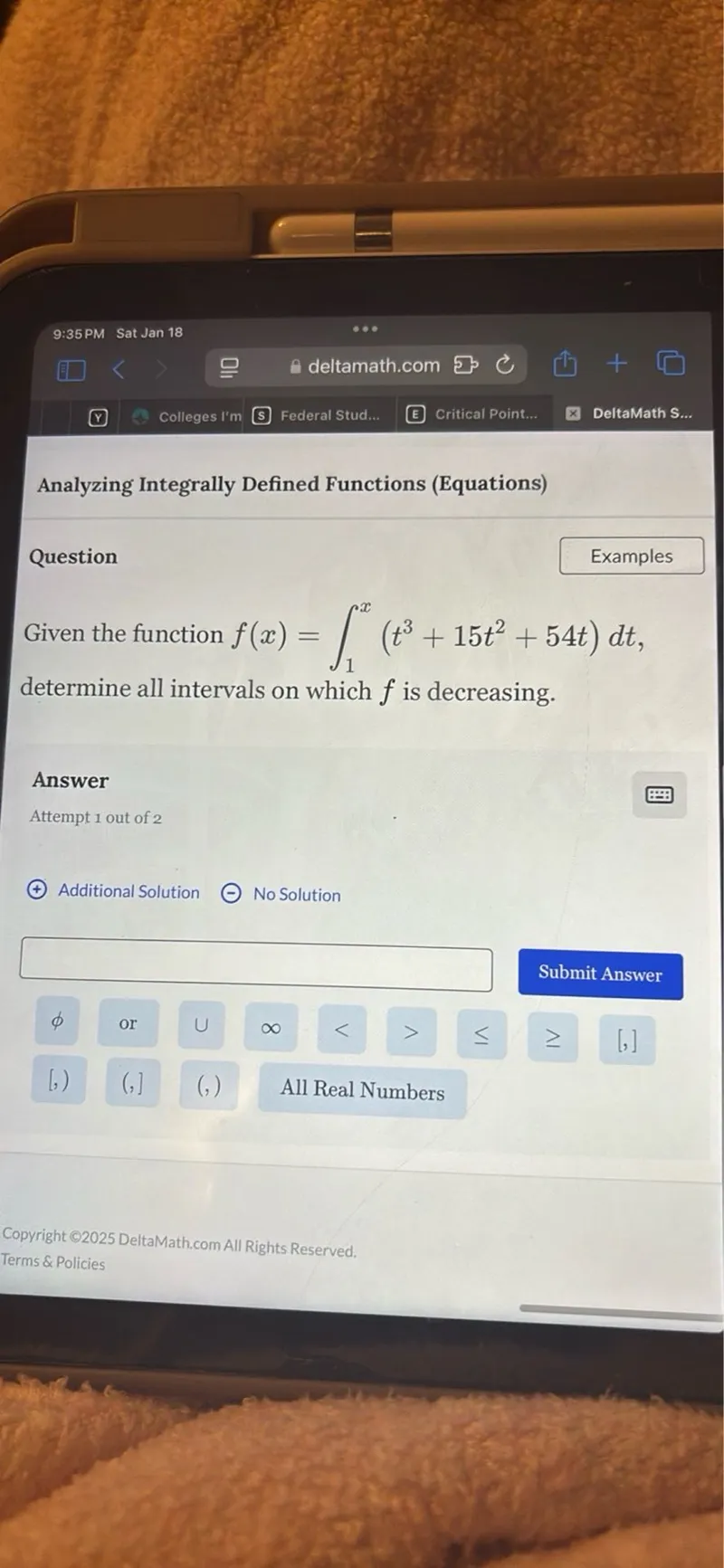Questions: Given the function f(x)=∫(from 1 to x)(t^3+15t^2+54t) dt determine all intervals on which f is decreasing.

Transcript text: Given the function $f(x)=\int_{1}^{x}\left(t^{3}+15 t^{2}+54 t\right) d t$ determine all intervals on which $f$ is decreasing.





